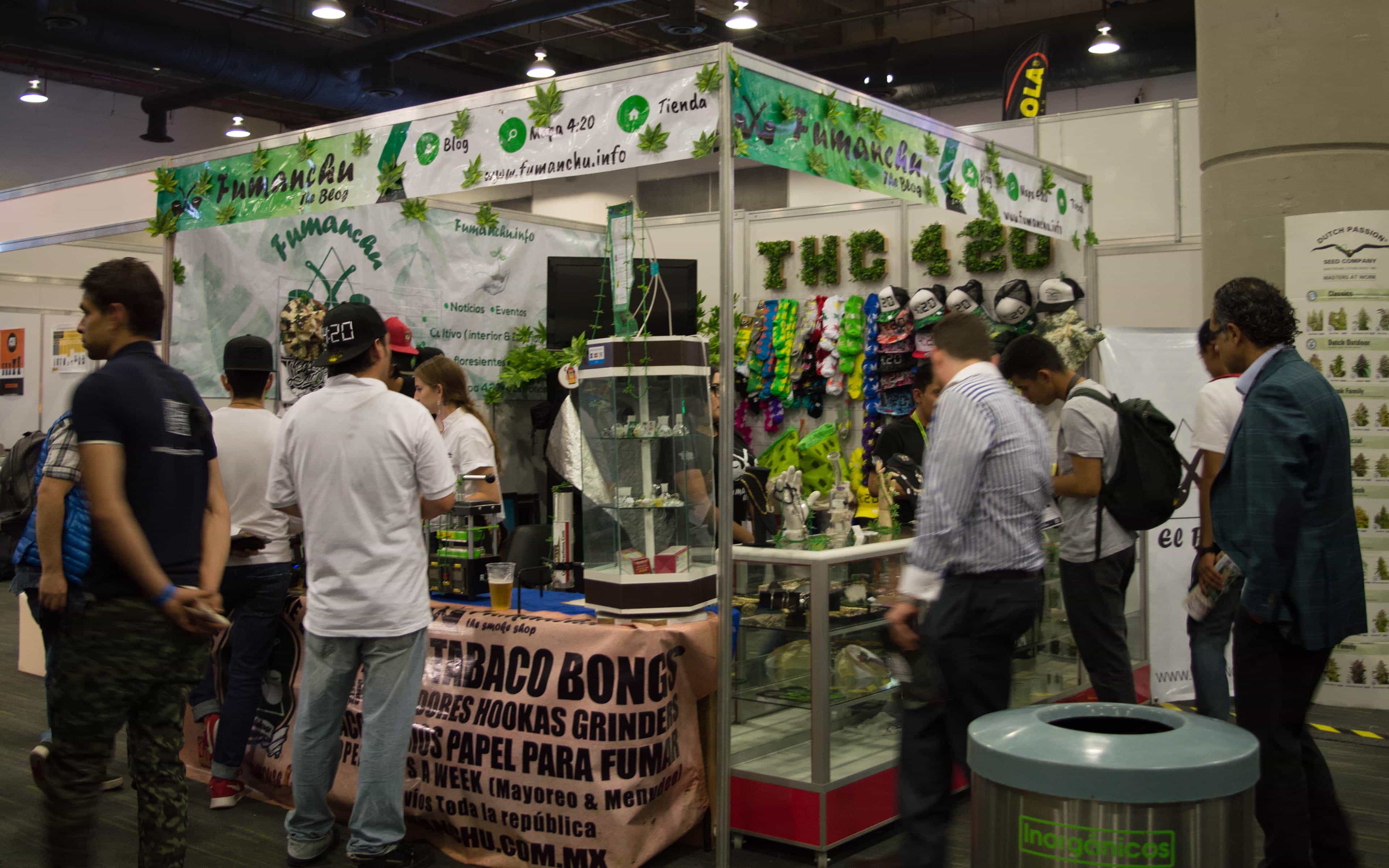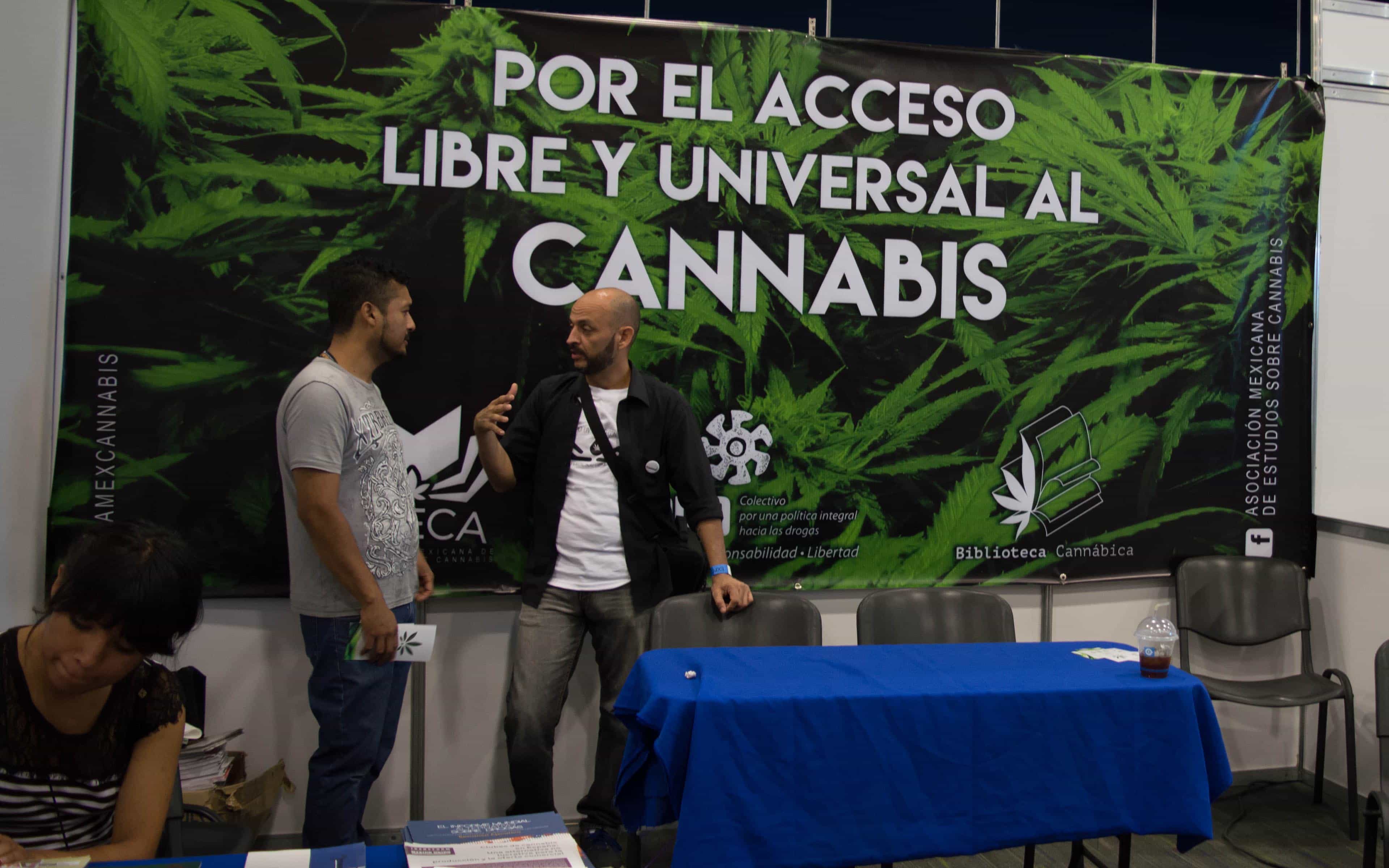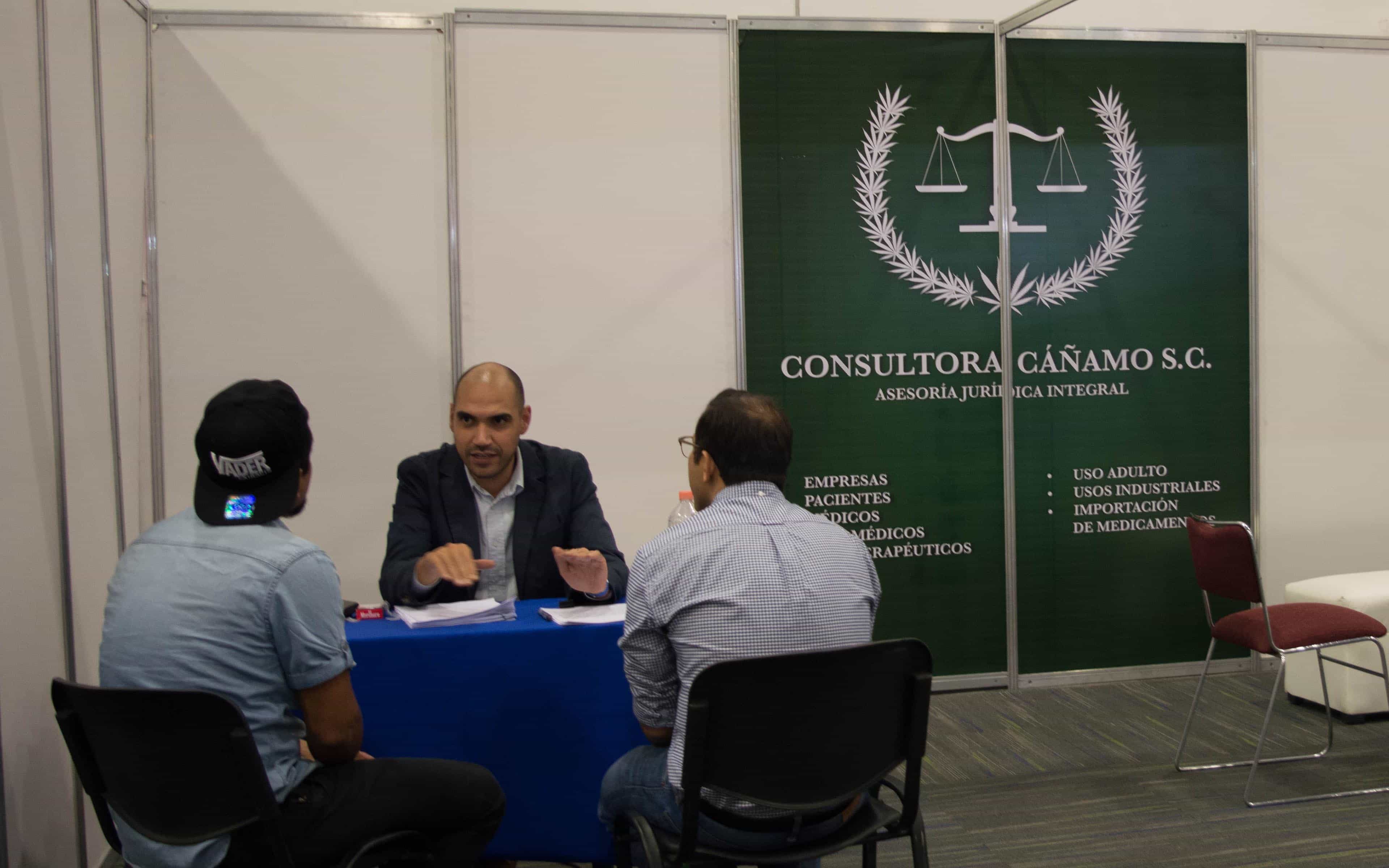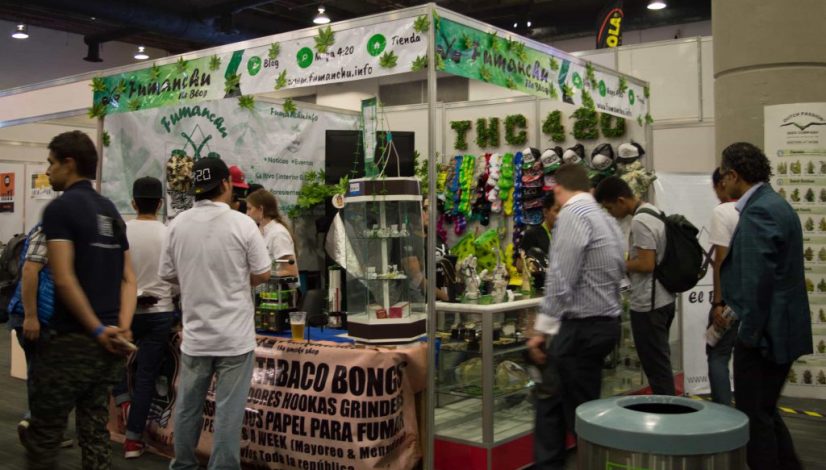Expo Weed Mexico Brings Cannabis Brands, Activists & Consumers Together
The second annual Expo Weed Mexico took place last weekend at the the World Trade Center in Mexico City, but it wasn’t exactly a Latin American Cannabis Cup. While the event did bring local and international cannabis companies together with activists and the general public, there was no actual weed at the event.
That’s because Mexico has very strict medical marijuana laws that were only passed on June 19 by President Enrique Peña Nieto. Unlike medical cannabis to the north in the U.S. and Canada, Mexico only allows CBD oil with one percent THC or less, mostly to help children with severe epileptic disorders.
The Mexican Ministry of Health has until mid-December to write its medical marijuana regulations, and while they probably won’t include the use of cannabis flower, many are hopeful it’s the first step in opening more thorough access to the plant.
So, what could there possibly be at a “weedless” marijuana expo?

There were more than 50 stands in the convention center promoting all kinds of products, from local Mexican headshops and cultivation stores to American, Canadian and European brands promoting everything from bongs to seeds to shatter. Of course, products like seeds and shatter weren’t available for purchase, but plenty of information and representatives were there to educate the public.
There were also two small stages where talks, panels and classes were given on everything from indoor cultivation to the laws and rights of the Mexican public.
General Hemp, the parent company of the producers and importers of Mexico’s first CBD oil, Real Scientific Hemp Oil-X (RSHO-X), were also there. Although, the CBD oil was not available to buy, representatives from General Hemp were there to talk to the public and distribute information. In fact, for now, RSHO-X is only available to those with a prescription and permission to import from COFEPRIS (acronym in Spanish for Federal Commission for the Protection against Sanitary Risk).
General Hemp is an American company that owns subsidiaries in Latin American, like HempMeds Brasil and HempMeds Mexico, and also in the U.S., like Medical Marijuana, Inc., the first publicly traded cannabis company in the U.S., and even Dixie Botanicals, the medical offshoot of the popular Dixie Elixirs.
Beyond CBD oil, General Hemp has big plans for Mexico.
“We hope that in a near future, we can bring a wide range of products like beauty products, medicines, food or supplements,” said Stuart Titus, CEO of Medical Marijuana, Inc. “Each product has a different law to enter into the country, and it will take time, but we are sure that in a few years, we would offer a vast variety of products to Mexicans.”
Some of the most popular stands at the event were local Mexican-owned headshops, like Rabbit Smokers and Mary Jane’s Smoke Shop. They sold a variety of glass pieces, rolling papers, grinders and weed leaf clothing and merchandise.
Local cultivation stores, like Mundo Verde, were also well-represented at the Expo. Although personal cultivation is still illegal in Mexico, these stores sell everything from nutrient solutions to grow lights—everything except seeds and clones.
The right to auto-cultivo (Spanish for personal use cultivation) is currently one of the biggest fights of activists in Mexico. Four individuals from the activism group SMART (acronym in Spanish for Mexican Society for Responsible and Tolerant Consumption) fought for their right to grow marijuana all the way to the Mexican Supreme court in 2015. Although these individuals won the right to grow their own plants, the case didn’t extend those rights to every citizen. Yet, it was a very important step in opening up safe cannabis access to the Mexican public, partly paving the way for the country’s current medical marijuana laws.
There are, however, clandestine cultivation and extraction workshops all over Mexico which activists swear by in order to help sick family members find relief from things like chemotherapy, Parkinson’s and other serious and chronic diseases.
Education and activism groups, like the Por Grace Foundation, were also well-represented.
Graciela Elizalde is a 10-year old girl who became the face of medical cannabis in Mexico in 2015. She suffers from a rare epileptic disorder known as Lennox-Gastaut Syndrome, and CBD oil was the only thing that reduced her seizures and improved the quality of her life. Her parents, founders of the Por Grace Foundation, won a landmark Supreme Court Case in Mexico in 2015, which was essentially the first step in Mexico’s current medical marijuana progress.

A similar organization, Una Esperanza Por Emili, was also represented, as well as Cannapeutas, an organization that provides classes on medical cannabis to doctors and patients in Mexico. They told me their work can be frustrating with the current law; many patients need more than one percent THC for their symptoms, forcing many to cultivate their own plants illegally, while others struggle to find any information at all, including proper dosing.
“That demand for information was what drove us to create courses so that patients could learn more about how cannabis could help different diseases… Imagine how frustrating it is for the patient. That is why they venture into cultivation and extraction, or buy in the illegal market,” a representative from Cannapeutas said. “The ideal [future of cannabis in Mexico] in our perspective is complete legislation, ranging from personal cultivation to national production and research.”
Local cannabis activism newspapers and magazines, like La Dosis, also had stands and were very involved in promoting the event in Mexico City.

Interestingly, almost half of the stands were foreign companies from the U.S., Canada and Europe, mostly selling auxiliary cannabis products like grow equipment, concentrate presses and products like the Medtainer, an airtight container for weed that’s also a functional grinder. Medtainer is owned by an American father and son; they were also the winners of Expo Weed’s Best Product Award.
“We made the conscious decision to expand to Mexico as we see this as an emerging market,” co-founder Shane Fairbrother said, “and we wanted to bring our presence to the people of Mexico in the beginning of their legalization efforts.”
There were also foreign cannabusinesses present who make products that are still illegal in Mexico, like California-based Vader Extracts and Barcelona-based Trikoma Seeds, among others. These stands didn’t have any products for sale, but they did have plenty of informational materials, like hand-outs and pamphlets, and promotional material, like free stickers. These companies also see Mexico as an emerging market and predict that within 10 years, the Latin American nation will have adult-use access similar to the U.S. and Canada, and therefore a market for their products.
With over 120 million people living in Mexico, Stuart Titus believes the legal marijuana market could be worth billions over the course of the next 10 years.
“We are sure that the Mexican cannabis industry will grow, especially after the changes made by the government to the law in terms of medical usages, and we expect that the market will be over two billion dollars when all the rules and regulations are established by the Health Ministry and other government institutions,” commented Titus.
Expo Weed is not just an event in Mexico; it travels throughout Latin America and will have events later this year in Colombia, Chile, Uruguay and Argentina.

The cannabis culture in Mexico is rapidly changing, especially as many Mexicans look north to the U.S. and Canada’s legalization progress. Events like Expo Weed are helping to change the stigma around cannabis, to show Latin Americans the benefits of medical marijuana and to promote safe, legal access for all.
Michelle Janikian is a freelance writer focused on drug policy and trends. Follow her on Twitter @m00shian.
RELATED: Mexican State Government Provides MMJ to Patients
You can keep up with all of HIGH TIMES’ marijuana news right here.


